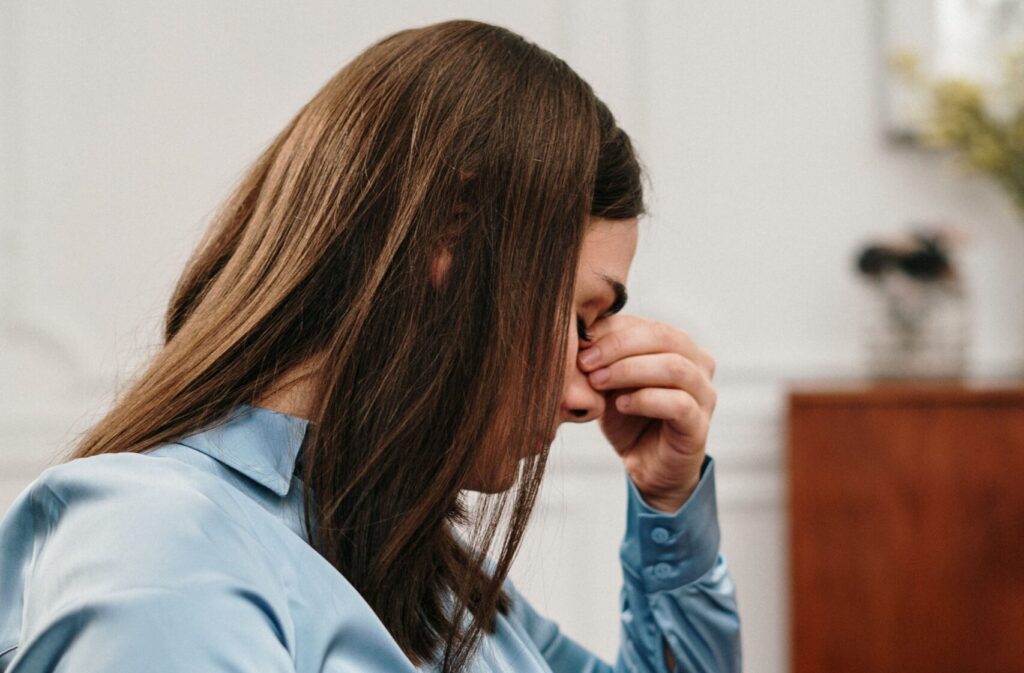Have you ever felt mentally drained after dealing with physical health problems?
Or maybe, you’ve found yourself struggling with a mental health issue that also affects physical health. If so, you’re not alone. Relationship between physical and mental health is a two-way street, and it’s crucial to understand how the two are interconnected.
In this blog, we’ll dive deeper into the topic and explore how poor physical health is closely related to poor mental health, and vice versa.

From the link between chronic health conditions and mental health to the impact of poor mental health on physical symptoms, we’ll cover it all. But that’s not all; we’ll also discuss the importance of addressing both physical and mental health through a joined care approach, which is the key to breaking the cycle of decline and maximizing overall well-being.
So, get ready to explore the body-mind connection and learn how to take control of your physical and mental health.
WHAT IS THE IMPACT OF POOR PHYSICAL HEALTH ON MENTAL HEALTH?
When it comes to our physical and mental health, it’s easy to think of them as separate entities. However, the truth is that they are closely interconnected. Poor physical health can have an intense impact on our mental well-being, and it’s important to understand how they affect each other.
Imagine dealing with a constant physical illness, like chronic pain or a chronic disease. It’s not just the physical discomfort that you have to face, but also the mental and emotional toll it takes. The constant pain and fatigue can make it difficult to focus on anything else, leading to feelings of depression and anxiety.
It’s a brutal cycle, where physical pain leads to mental suffering, which in turn, makes it even harder to manage the physical disease.
Chronic physical health conditions, such as heart disease, diabetes, and arthritis, can also take a toll on mental health. Not only do these conditions come with their own set of physical symptoms, but they also bring with them a host of emotional and psychological challenges. People with chronic health conditions may experience isolation and loneliness, which can contribute to feelings of depression and anxiety.
They may also have to rely on medication to manage their condition, which can have side effects that affect mental health.
It’s important to remember that poor physical health and poor mental health feed into each other. One can make worse the other, leading to a decline in general well-being.
That’s why it’s crucial to address both physical and mental health to break the cycle and improve the overall quality of life.
THE IMPACT OF POOR MENTAL HEALTH ON PHYSICAL HEALTH
Poor mental health can also have a significant impact on physical health. When we’re dealing with emotional or psychological pain, it can be difficult to think clearly, make healthy decisions and fight off chronic diseases. Stress, depression, and anxiety can lead to unhealthy coping mechanisms, such as overeating or not eating enough, and lack of physical activity, which can negatively impact physical health.
Stress, in particular, can have a major impact on physical health. Chronic stress can lead to a host of physical health problems, such as high blood pressure, heart disease, and obesity. Stress can also weaken the immune system, making it more difficult to fight off illnesses and infections.
Depression and anxiety can also hurt physical health. People with depression are more likely to experience chronic pain and long-lasting conditions like diabetes. According to an article published in U.S. News and World Report state that increase in respiratory diseases such as asthma, and other diseases like arthritis, heart disease and cancer in individuals with depression are due to that they are less likely to seek care for their physical health such as weight, cholesterol and blood pressure.
Anxiety can lead to headaches, muscle tension, and stomach problems.
Furthermore, people with poor mental health may also have difficulty adhering to medical treatment and may not take good care of themselves.
In short, poor mental health can lead to a range of physical health problems, which in turn can intensify mental health issues. It’s important to address both physical and mental health to break the cycle of decline and improve overall well-being. An integrated care approach that addresses both physical and mental health needs can be effective in treating both and improving the overall quality of life.
INTEGRATED CARE FOR PHYSICAL AND MENTAL HEALTH
When it comes to addressing our health, it’s easy to think of physical and mental health as separate operation. We may go to the doctor for a physical disorder and see a therapist for mental health concerns, but
what if I told you that the two are complicatedly connected?
That’s where integrated care comes in.
Integrated care is a holistic approach that recognizes the close relationship between our physical and mental well-being. It’s about treating the whole person, not just their symptoms. Imagine a team of healthcare professionals, like doctors, nurses, mental health professionals, and social workers, all working together to provide the best care possible.
By breaking down the barriers between physical and mental health, they can communicate and coordinate care, ensuring that all of your needs are met.
One example of integrated care is the integration of primary care and mental health services. Instead of having to go to a separate location for mental health treatment, you can receive both physical and mental health care in one convenient location.
This can reduce the shame associated with seeking mental health care and make it easier for patients to access the care they need.
Another example is the integration of physical rehabilitation and mental health services. This is particularly useful for those struggling with chronic physical health conditions. Imagine having a therapist to help you cope with the emotional toll of chronic pain, in addition to a physical therapist helping you to regain strength and mobility.
Integrated care also includes care coordination and case management, which helps patients navigate the healthcare system, connecting them with the appropriate services and providers. This ensures that patients receive the care they need,- and that their physical and mental health needs are met.
References
https://www.mentalhealth.org.uk/explore-mental-health/a-z-topics/physical-health-and-mental-health



Pingback: Explore the Beauty of Canada: Top 7 Hidden Hiking Destinations for Adventure Enthusiasts - HEALTH AURA
Pingback: 7 Best Daily Use Ayurveda Products Canada For 2024 - HEALTH AURA
Pingback: "Discover the Art of Aerial Yoga: Best Techniques, Tips, and Equipment Insights" - HEALTH AURA